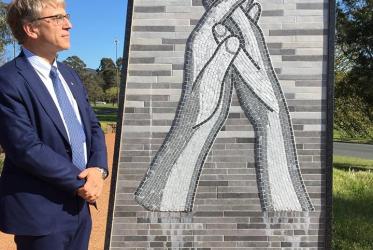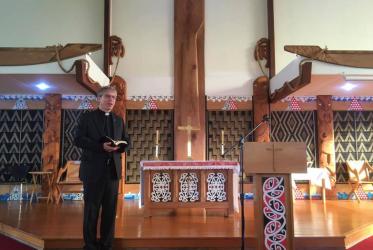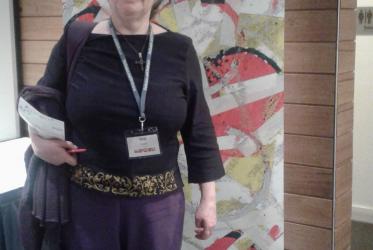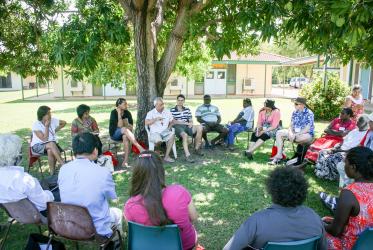Displaying 61 - 80 of 133
#WCC70: A story of how we meet together
02 February 2018
#WCC70: Un récit de la manière dont nous nous réunissons
02 February 2018
WCC Executive Committee issues statement on bishop from Philippines
18 November 2017
A voice for peace from Down Under
10 July 2017
“Overcoming economic injustice” vision of WCC’s Athena Peralta
23 February 2017
New videos help congregations hasten HIV response
20 October 2016
WCC general secretary visits Aotearoa New Zealand
10 October 2016
Indigenous spirituality: can it transform injustice into justice?
01 September 2016
La spiritualité autochtone peut-elle transformer l’injustice en justice?
01 September 2016












